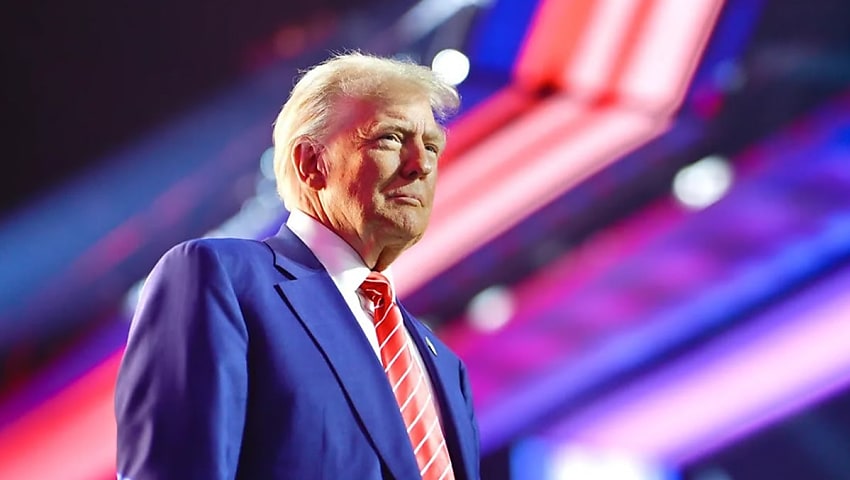It is now obvious that the world can expect to move towards a “winner-takes-all” approach following the recent inauguration of the newly re-elected US president, Donald Trump, and the swift death of political sensibility and over-regulation in the country leading the free world.
As for his inauguration address as America’s 47th president, US President Donald J Trump made it abundantly clear that the advancement of Western technology development and renewed dominance of US strategic interests will take precedence over traditionally ethics-driven government policy.
Among the “politically sensitive policies” being revoked by the new president, there are common themes of artificial intelligence guardrails, environmental and anti-fossil fuel energy policy, humanitarian-based immigration; “win-win” free trade relations as well as diversity, equity and inclusion-related government policies.
“I will immediately begin the overhaul of our trade system to protect American workers and families. Instead of taxing our citizens to enrich other countries, we will tariff and tax foreign countries to enrich our citizens,” the US President said during the inauguration address.
“For this purpose, we are establishing the External Revenue Service to collect all tariffs, duties and revenues. It will be massive amounts of money pouring into our Treasury, coming from foreign sources.
“This week, I will also end the government policy of trying to socially engineer race and gender into every aspect of public and private life. We will forge a society that is colour-blind and merit-based.
“I will sign an order to stop our warriors from being subjected to radical political theories and social experiments while on duty. It’s going to end immediately. Our armed forces will be freed to focus on their sole mission: defeating America’s enemies.
“The United States will once again consider itself a growing nation — one that increases our wealth, expands our territory, builds our cities, raises our expectations and carries our flag into new and beautiful horizons.”
The new US president has already revoked a 2023 executive order which attempted to reduce the risks posed by artificial intelligence and required the sharing of safety tests. This was followed by a new $500 billion funding announcement under The Stargate Project to build artificial intelligence infrastructure and restore American leadership in the industry.
Trump has also pledged to declare a national energy emergency, announced that the US government will open the vast natural resource fields of Alaska, remove itself from the Paris Climate Agreement, and in regard to American oil production, in his words: “We will drill, baby, drill.” This new ideology swing has been at odds with previous environmentally sensitive energy policy advocating for solar, wind and other renewable methods.
The new US president’s thoughts are clear regarding traditional humanitarian-based immigration. “The Department of Justice and Department of State have been directed to take all necessary action to immediately repel, repatriate and remove illegal aliens across the southern border of the US”, according to an executive order signed by President Trump.
“Illegal immigration affects the lives of all Americans. Illegal immigration hurts American workers, burdens American taxpayers and undermines public safety, and places enormous strain on local schools, hospitals and communities, in general, taking precious resources away from the poorest Americans who need them most,” a statement from Trump in 2018 said.
“Illegal immigration costs our country billions and billions of dollars each year … And I will therefore take every lawful action at my disposal to address this crisis.”
What impacts might these policy changes have on the rest of the world?
Time and again we have heard that “When America sneezes, the rest of the world catches a cold.”
Following these rapid movements in government policy by the leader of the free world, it will be interesting to see if other Western governments, such as Australia, follow the same path.
We already know that the revocation of artificial intelligence guardrails, environmental and anti-oil energy policy, humanitarian-based immigration, win-win trade relations as well as diversity, equity and inclusion-related government policies would have little impact on the revisionist world order led by Russia, North Korea and the People’s Republic of China.
After-all, these alternate world order countries have never invested in such government policy to begin with and have little interest in starting now or into the future.
In this case, if successful, the US administration revisions could perhaps be equated to a levelling of the international playing field, the conclusion of a self-imposed handicap and America’s reinvigorated return to a global race it cannot afford to lose.
“In recent years, our nation has suffered greatly. But we are going to bring it back and make it great again, greater than ever before,” the US President said during the inauguration address.
“We will be a nation like no other, full of compassion, courage and exceptionalism. Our power will stop all wars and bring a new spirit of unity to a world that has been angry, violent and totally unpredictable.
“America will be respected again and admired again, including by people of religion, faith and goodwill. We will be prosperous, we will be proud, we will be strong and we will win like never before.
“We will not be conquered, we will not be intimidated, we will not be broken and we will not fail. From this day on, the United States of America will be a free, sovereign and independent nation.
“We will stand bravely, we will live proudly, we will dream boldly and nothing will stand in our way because we are Americans. The future is ours and our golden age has just begun.”
The question remains to be seen how this radical shift in American policy will impact Australia’s domestic policymaking and whether, if successful, will Australian politicians have the gumption to follow America’s lead in massive government policy reform to achieve international competitiveness?


